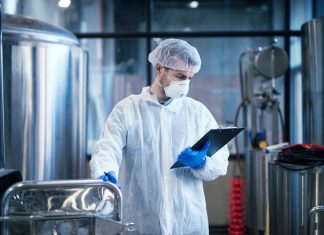
There is no doubt that the regulation of pharmaceutical logistics in Russia is going to become stricter and stricter. Now it is mainly regulated by the Decision of Eurasian Economic Commission No. 80 and Roszdravnadzor Order No. 646n. In fact, the decision contains the interpretation of the standards of Good Distribution Practice (GDP) adopted by the EAEU members, the order is a list of rules for market participants, and the sanitary regulations and standards (SanPins) are their interpretation.
It is easy to notice the progress in monitoring compliance with the rules and the development of market participants. For continuous business development, it is necessary to focus more and more on the level of quality of services provided. Pharmaceutical manufacturers want to be sure that their products are stored in the right conditions that guarantee drug safety. A well-equipped warehouse alone is not enough. Today, a 3PL operator must be transparent, open and flexible. By complying with these requirements, a company not only increases its status, but also guarantees high-quality service to its customers.
To survive, you have to run, because the industry is moving forward quickly. For example, our company conducts about 60 client audits per year. It should be noted that a significant part of the clients are foreign partners. For Russian colleagues, this is an invaluable experience of implementing regulatory requirements.
Monthly maintenance of warehouse equipment, including not only special equipment such as medium-temperature freezers, but also backup power supplies, minimizes the influence of human factors. The key tool is risk analysis and regular testing of your own infrastructure for its readiness to withstand all sorts of circumstances. I’ll give you an example. When the temperature is modulated close to the critical threshold, an alarm goes off in the warehouse, and the employees in charge receive notifications on the phone. Let’s assume that an emergency situation happened at three o’clock in the morning, and all the interested parties ignored the message. In order to avoid such failures, we eliminated this risk by installing the loudest alarm possible above the round-the-clock security point. A security officer will definitely hear the alarm and will then act according to the protocol. I’ll give you my second example. We conducted a stress test to check the temperature regime changes when the door is open for a long time. According to the results of the the test, we installed new heating elements and shut off devices above the doors. Now, even when the chamber stays open for a long time, the temperature inside does not rise by more than 1°C.
The COVID-19 pandemic has led to a dramatic improvement in the work of pharmaceutical logistics, because Sputnik V had to be transported and stored at a temperature no higher than -18°C. As a result, the need to maintain the cold chain has grown exponentially. It was necessary to create an infrastructure to maintain it everywhere, from the pharmaceutical plant to vaccination stations; that involved finding equipment, special ultra-low temperature vehicles, to develop a transportation procedure, to train personnel.
The next breakthrough for the industry may be the tightening of regulation on the conditions of veterinary drugs transportation and storage, which would mean that they are subject to the same rules as drugs for human use.
When it happens, the veterinary drug industry can expect a new level of interaction with specialized 3PL operators that have all the necessary resources for the storage, processing and transportation of veterinary drugs.





